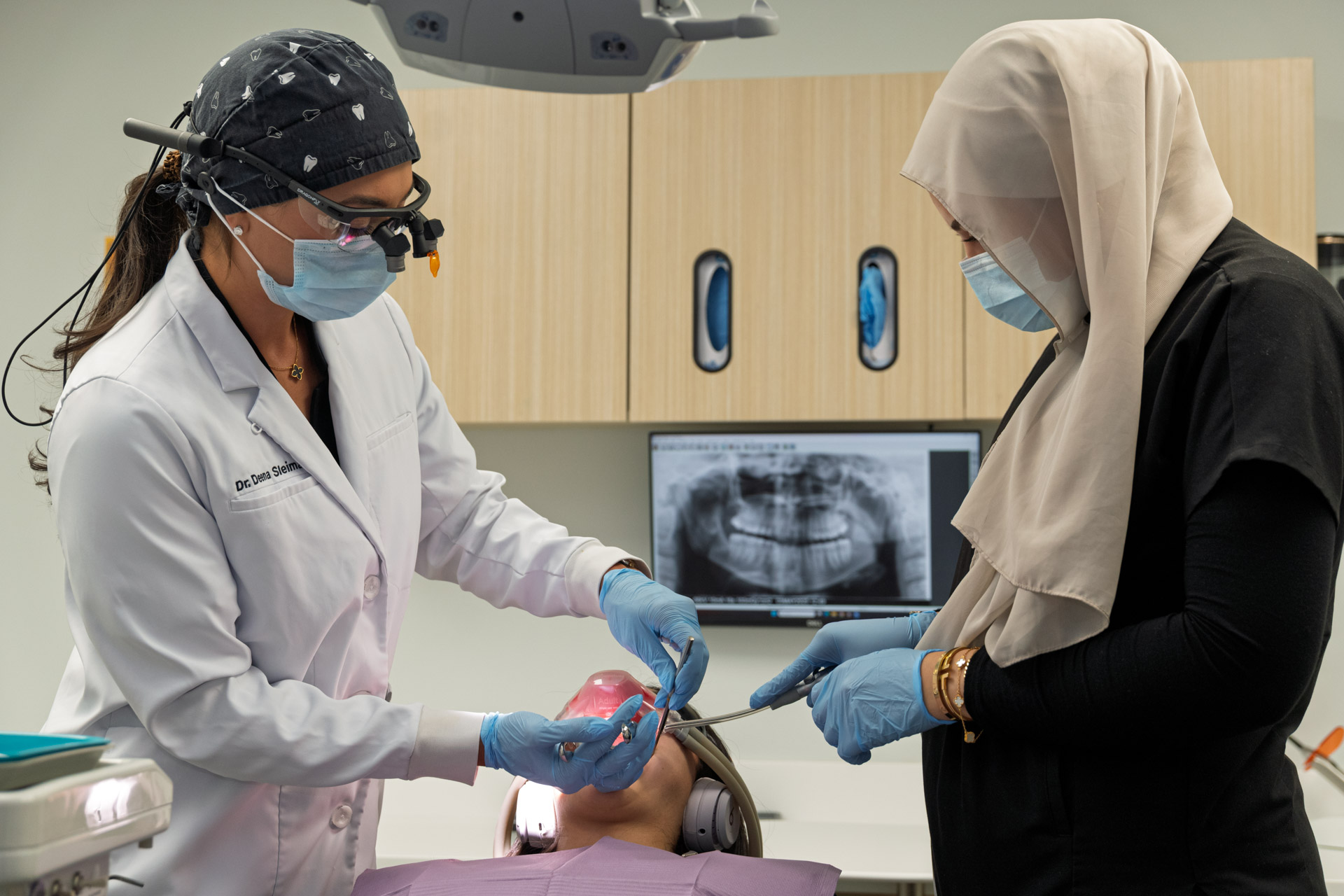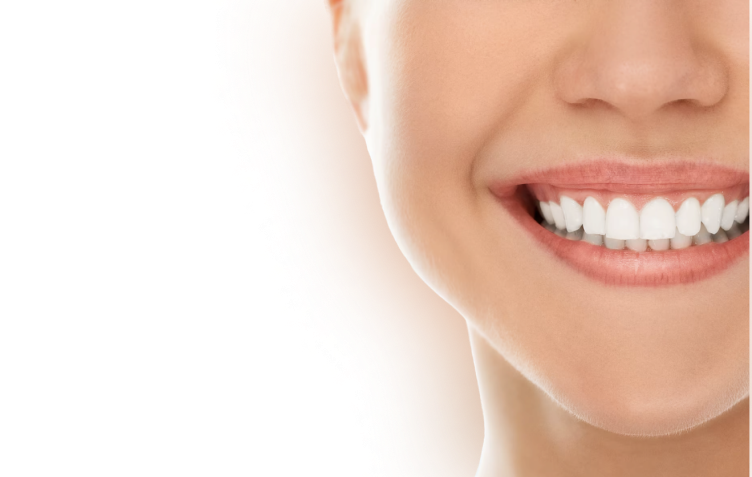A dental bridge is a custom-made prosthetic device designed to “bridge” the gap created by one or more missing teeth. Traditional bridges consist of one or more artificial teeth (pontics) anchored in place by dental crowns attached to the natural teeth on either side of the gap (abutment teeth). These restorations are permanently fixed in your mouth, providing stability and functionality that resembles your natural teeth.
Dental bridges are typically made from high-quality materials such as porcelain, ceramic, or porcelain fused to metal. These materials can be matched to the color of your natural teeth, creating a seamless restoration that blends beautifully with your smile. Call our Dearborn Heights family dentists today to take your first step towards the smile of your dreams.
Professional dental care accessible to everyone with comprehensive insurance acceptance and flexible payment options.

At SmilePro Dental, we offer several types of dental bridges to address different clinical situations and patient preferences:
The most common type of bridge consists of one or more artificial teeth supported by dental crowns placed on the natural teeth on either side of the gap. Traditional bridges provide excellent stability and are suitable for most situations where there are healthy teeth adjacent to the missing tooth space.
When healthy teeth are available on only one side of the gap, a cantilever bridge may be recommended. This design anchors the artificial tooth to one or more crowns on just one side. While less common than traditional bridges, cantilever bridges can be an appropriate solution in specific circumstances.
For front teeth replacements where minimal alteration of adjacent teeth is desired, we may recommend Maryland bridges. These conservative restorations use metal or porcelain wings bonded to the backs of adjacent teeth, rather than full crowns. This preserves more of your natural tooth structure while still providing an aesthetic replacement for the missing tooth.
For patients missing multiple teeth, implant-supported bridges offer superior stability and bone preservation. Rather than using natural teeth as anchors, these bridges are supported by dental implants surgically placed in the jawbone. This option prevents the bone loss that typically occurs after tooth loss and doesn’t require altering healthy adjacent teeth.


Dental bridges restore your ability to chew properly and speak clearly—functions that may be compromised by missing teeth. By replacing gaps in your smile, bridges help distribute bite forces evenly across your remaining teeth, potentially preventing issues with your temporomandibular joint (TMJ).
A well-crafted dental bridge fills out your smile and supports facial tissues that might otherwise sag due to missing teeth. This restoration not only replaces visible teeth but also maintains the natural shape of your face, helping you look younger and healthier.
When a tooth is lost, adjacent and opposing teeth tend to shift into the empty space over time. This movement can lead to bite problems, increased wear on remaining teeth, and difficulty cleaning between crooked teeth. Bridges prevent this unwanted tooth movement by filling the gap and maintaining proper spacing.
Perhaps one of the most significant benefits of dental bridges is the restored confidence that comes with having a complete, natural-looking smile. Many patients find that they smile more freely and feel more comfortable in social and professional settings after receiving their bridge.
With proper care, dental bridges typically last 10-15 years or longer. This makes them a durable, long-term solution for tooth replacement that provides excellent value.
Your journey to a restored smile begins with a thorough consultation. During this appointment, we:
This comprehensive approach ensures we create a treatment plan tailored to your specific needs.
If you’re receiving a traditional or cantilever bridge, we prepare the abutment teeth to accommodate the supporting crowns:
For Maryland bridges, minimal preparation is needed—just slight recontouring of the backs of the supporting teeth.
Your impressions are sent to a skilled dental laboratory where your custom bridge is crafted:
This process typically takes 1-2 weeks, during which you’ll wear a temporary bridge to protect your prepared teeth and maintain your appearance.
When your custom bridge is ready, you’ll return for the placement appointment:
Before you leave, we provide detailed instructions for caring for your new restoration to ensure its longevity and your continued comfort.
With proper care, your dental bridge can provide many years of service. We recommend:
During your routine visits, we’ll examine your bridge to ensure it remains in good condition and continues to function properly.
When considering tooth replacement, it’s helpful to understand how bridges compare to other options:
Dental Bridges:
Dental Implants:
Dental Bridges:
Partial Dentures:
During your consultation, we’ll discuss which option best suits your specific situation, considering factors like the number and location of missing teeth, the condition of adjacent teeth, bone health, budget, and personal preferences.

A dental bridge represents an investment in both your oral health and quality of life. The cost varies depending on several factors:
At SmilePro Dental, we believe quality dental care should be accessible for you and your family. We take all insurance plans and offer flexible financing options through providers like CareCredit and Cherry. Our team works with you to maximize any applicable insurance benefits and find payment solutions that fit your budget.

We commonly collaborate with other healthcare professionals to offer specialized care for complex dental cases and are committed to providing the best for your patients.

At SmilePro Dental, our experienced team combines technical skill with an artistic eye to create dental bridges that look, feel, and function like natural teeth. We’re committed to providing restorations that not only solve the immediate problem of missing teeth but also support your long-term oral health and confidence.
Whether you’re missing a single tooth or several teeth, we provide the personalized care and expertise needed for successful bridge treatment. Contact us today through our contact form to schedule your consultation and take the first step toward a complete, beautiful smile.
A traditional three-unit dental bridge at Smile Pro Dentist costs $2,000-$5,000 total, making it initially less expensive than a single implant ($3,000-$5,000) plus crown ($1,000-$2,000). However, bridges typically need replacement every 10-15 years and require grinding down two healthy adjacent teeth for support, while implants can last 25+ years without affecting neighboring teeth. When considering long-term costs and the preservation of healthy teeth, many patients find implants more cost-effective, though bridges remain an excellent option when implants aren’t suitable due to bone loss or medical conditions.
Dental bridges typically last 10-15 years with proper care, though some patients at Smile Pro Dentist maintain their bridges for 20+ years through excellent oral hygiene and regular professional maintenance. Caring for your bridge requires daily flossing underneath using special threaders or water flossers, brushing twice daily with fluoride toothpaste, and professional cleanings every 3-6 months to prevent decay in the supporting teeth. The most common reason bridges fail is decay in the anchor teeth, making meticulous cleaning around and under the bridge essential for longevity.
Yes, you can still get a dental bridge even after years of tooth loss, though Smile Pro Dentist will first evaluate whether your adjacent teeth have shifted and if your bite has changed during this time. Long-term missing teeth may cause neighboring teeth to tilt or opposing teeth to super-erupt, potentially requiring minor orthodontic adjustment or crown lengthening before bridge placement. Unlike implants which need adequate bone density, bridges don’t depend on jawbone health, making them an ideal solution for patients with bone loss who want to avoid grafting procedures.
We build long lasting relationships with our patients, using leading edge technology to deliver a high quality and a unique dental experience.